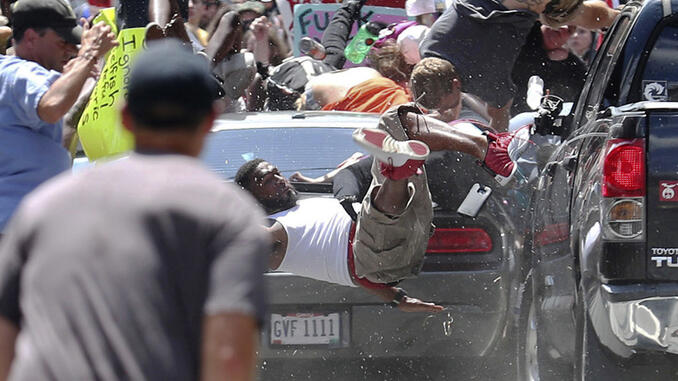
Quite literally within eyesight of Monticello, the home of Thomas Jefferson who wrote the soaring words that “all men are created equal” in the Declaration of Independence, America’s image was scarred yet again with racially motivated protests in Charlottesville, Virginia. Saturday’s violence occurred when white supremacists held a rally to protest the planned removal of a statue of the Civil War general, Robert E. Lee. Clashes injured many, and at least one person was killed when a car plowed into a group protesting the white supremacists. The governor of Virginia, Terry McAuliffe declared a local state of emergency to stop the violence. News of the clashes quickly spread all over the world.
The clashes come on the heels of Donald Trump’s campaign rhetoric in last year’s election that many felt emboldened those sympathetic to the cause of white supremacists. When David Duke, a former Imperial Wizard of the Klu Klux Klan, endorsed Trump for President, Trump initially refused to disavow the endorsement. The incident was seen as a wink and a nod to white supremacist movements. It was not the first time Trump had come under scrutiny for racially insensitive views. In 1973 he was sued for discrimination against blacks by refusing to rent properties to “because of race and color.” He eventually settled the case out of court.
In Virginia, the Trump campaign’s co-chair, Corey Stewart, found his political niche on the coattails of Trump. It should be pointed out that Stewart had later been fired from the Trump campaign, but not for his lack of shared social views. After his ouster Stewart ran for the Republican nomination for Virginia governor in 2017. His campaign was notable for how it echoed Trump’s campaign by playing to the issues that the alt-right and white supremacists cared deeply about. Among those issues, the push against the removal of the very statue of Robert E. Lee that violence broke out around on Saturday. Often, his rallies were attended by those waving Confederate flags. While many dismissed Stewart’s campaign as dead in the water, he did surprising well in the primaries by placing a very close second.
There is plenty of blame to go around for the violence, but Trump bares particular responsibility for playing to the views of the white supremacists that held the protest. His indifference and rhetoric during the campaign, such as not disavowing David Duke’s endorsement or inspiring those who campaigned on those views like Corey Stewart, emboldened white nationalist into feeling that there was a socially acceptable place in American society for their views. Obviously, President Trump will lay all blame on those other than himself, but he himself poured gasoline on those striking matches. Instead of working to solve America’s race problems, he exploited them to gain votes.
The incident in Charlottesville could give President Trump a chance to redeem his image on race, though, that is admittedly unlikely. At the time of this writing, his words condemning the violence have been careful not to put blame exclusively on the white supremacists who carefully chose Charlottesville as a place to hold a national rally to pick a fight.
